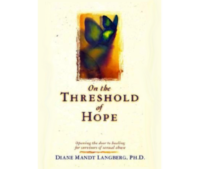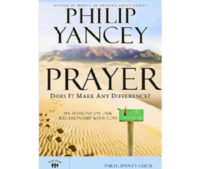 survivors
survivors
INFORMATION TO EMPOWER YOU
 survivors
survivors
INFORMATION TO EMPOWER YOU
If you are a survivor, we hope this website will provide you with information that will empower you in understanding and responding to the physical, emotional, and spiritual impact of child abuse and neglect.
We are also willing to assist by answering any spiritual questions you may have or to help you find a professional who can help.
If you have any questions, please contact us.
Call 911 if you or someone you know is in crisis and needs immediate assistance.
Additional resources include:









There is a lot of confusion about forgiveness, especially when it comes to child abuse. Sometimes a well-intended friend will tell us, “You just need to forgive and move on.” Or a relative may encourage us to “forgive and forget.” Both of these statements confuse rather than clarify the matter of forgiveness.
First let us consider what forgiveness is not. It is not saying what the person did was okay. It was not. It was wrong and it hurt us deeply. Nor does forgiveness mean we have to forget and act as though it never happened. That is not helpful either. If we know someone is an abuser, we need to remember that and do what we can to prevent that person from abusing us or others in the future. That was difficult to do as a child because of our vulnerable situation.
A simple definition of forgiveness is “giving up my self-perceived right to get even.” Romans 12 tells us, “’It is mine to avenge, I will repay,’ says the Lord.” Giving up the desire to get even does not usually happen quickly. The person hurt us deeply, to our very heart and soul. Some days we may be ready to leave it in God’s hands. Other days we are filled with anger and hurt.
The more we let go of this perceived right, the more we free ourselves from the captivity of the abuse. So we see that giving up the right is not something that benefits the abuser, but something that helps us in our journey of healing.
Because forgiveness can be difficult and complex, it is helpful to seek out a pastor or Christian counselor to help us with this process.
There are two kinds of forgiveness. Vertical forgiveness is God forgiving us. It is a proclamation. It is a done deal. On the cross Jesus announced, “It is finished.” Because Jesus lived and died in our place, we have forgiveness and life. It is always perfect and complete in this life because it comes from God. When we approach God with humble and penitent hearts, he assures us, “Your sins are forgiven.” He can say that because Christ paid the price of our sins.
Horizontal forgiveness is different. It goes from person to person. It flows out of our love for Christ and our appreciation for what he has done for us. Unlike God forgiving us which is instantaneous and complete, our forgiveness of others is a process that is never perfect in this life.
When we offer someone horizontal forgiveness, we are not saying that what the person did to us was okay. It was not. Nor does it mean that we will forget that it ever happened. We can’t. Horizontal forgiveness means that we give up our self-perceived right to get even. We leave justice in God’s hands and utilize the resources God has given us to respond to abuse—including using civil and criminal authorities.
Remember that this type of forgiveness is a process. It takes time.
Those who are abused as children often have a difficult time with forgiving the person or persons who hurt them. In many cases this was a parent, grandparent, sibling, relative, or some other person that was close to you. This was someone you trusted, someone who was to care for you, but instead this person hurt you and took advantage of you.
Another thing that can make forgiving your abuser difficult is that it may have happened many times over many years and in many different ways. Usually abuse does not come in a single form. Those who are abused sexually are often abused emotionally and spiritually. Likewise whose who suffer physical abuse often suffer verbal abuse as well.
Finally the person who abused you may not be sorry for what he or she did. Perhaps the person even denies that it ever happened. How can you forgive if the person isn’t even sorry for what he or she did, you may wonder?
These are only a few of the factors that make forgiveness a challenging task for those who have been abused. However, many survivors are able to work through this forgiveness process and heal from the abuse.
Many survivors worry that God will condemn them if they cannot forgive the person that abused them. For example, one man said that he couldn’t forgive his father for torturing him repeatedly and was worried his soul was in jeopardy. If you are a Christian struggling with forgiveness, it is important to remember that you are not God. Accordingly, you will never be able to forgive or perform other works in the way God can. The scriptures make clear that only unbelief sets us apart from God (John 3:16).
In commenting on the obligation in the Lord’s Prayer to forgive others, Martin Luther said the devil lies to us when he says “You must forgive or you will not be forgiven; you have not forgiven; therefore despair.” Luther simply retorted that through faith we will want to forgive but may not forgive fully this side of heaven.
Check the book reviews on this website.
Visit our FFTC counselors page for resources that may help in finding a counselor.
HAVOCA provides support, friendship, and advice for any adult whose life has been affected by childhood abuse. HAVOCA
An organization committed to preventing, healing, and eliminating all forms of sexual victimization of boys and men through support, treatment, research, education, advocacy, and activism. Male Survivor
RAINN is the nation’s largest anti-sexual violence organization. Resources include a national hotline (800.656.HOPE), resources, information, and education and training. RAINN
Informational brochures and counselor information to help Christians make informed choices as they choose a mental health provider when suffering from abuse or addiction.
Standing Up for Children: A Christian Response to Child Abuse and Neglect. All churches and schools need to be safe places where leaders actively work to prevent abuse. Freedom for the Captives (FFTC) offers online training videos taught by experts Mr. Victor Vieth, director of education and research at Zero Abuse Project and Prof. John Schuetze, a seminary professor and counselor. To learn more, check our training webpage. To request the training for yourself or your group, please complete our online learning registration form.